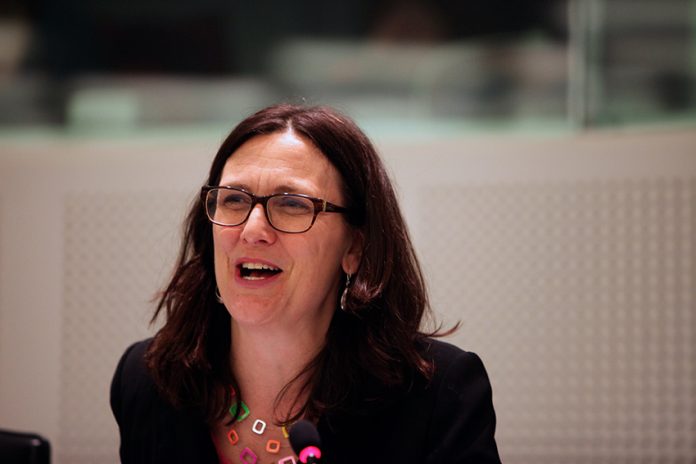Nearly all trade in goods between the European Union and Mexico is now duty-free under a new trade deal. Modelled on the EU’s trade deal with Canada, the agreement is expected to be finalised by the end of the year.
“Trade can and should be a win-win process and today’s agreement shows just that,” said European Commission President Jean-Claude Juncker. “Mexico and the EU worked together and reached a mutually beneficial outcome. We did it as partners who are willing to discuss, to defend their interests while at the same time being willing to compromise to meet each other’s expectations. With this agreement, Mexico joins Canada, Japan and Singapore in the growing list of partners willing to work with the EU in defending open, fair and rules-based trade.”
The European Union Simpler customs procedures is expected to further benefit the EU’s industry, including in sectors like pharmaceuticals, machinery and transport equipment.
The agreement lays down progressive rules on sustainable development. Among other things, the EU and Mexico have committed to effectively implementing their obligations under the Paris Agreement on climate change. It will also be the first EU trade agreement to tackle corruption in the private and public sectors.
“In less than two years the EU and Mexico have delivered a deal fit for the economic and political challenges of the 21st century,” said Commissioner for Trade Cecilia Malmström. “We now open a new chapter in our long and fruitful relationship, boosting trade and creating jobs. Today’s agreement also sends a strong message to other partners that it is possible to modernise existing trade relations when both partners share a clear belief in the merits of openness, and of free and fair trade.”
In turn, Europe’s Commissioner for Agriculture, Phil Hogan, stressed the agreement proves the value of the EU leading from the front globally in promoting open and rules-based trade. “Our commitment is to deliver benefits for our citizens at home through closer cooperation with our partners abroad. This deal is very positive for our agri-food sector, creating new export opportunities for our high-quality food and drink products, which in turn will create support more jobs and growth, particularly in rural areas.”
According to Deutsche Welle (DW), Germany’s international broadcaster, the EU has sought to frame itself as a leading defender of free trade in the face of US protectionism since plans for a trade agreement with the US were halted after Donald Trump‘s election victory in November 2016.
A senior EU official said on April 21 the bloc will fight to ensure a permanent exemption from US steel and aluminium tariffs before a temporary reprieve expires on May 1.
What is more, the EU has announced plans to fast-track similar trade agreements with other states and starts talks with the Mercosur bloc of Argentina, Brazil, Paraguay and Uruguay this week.
The EU is also pursuing agreements with Australia and New Zealand and has already signed deals with Japan and Singapore.

